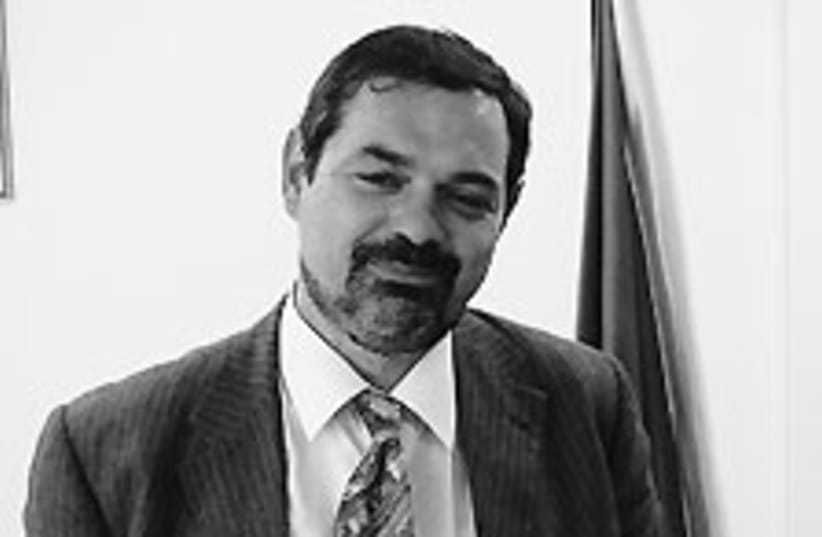Israel and Italy cooperate on tech projects
Italy has probably become Israel's second most important scientific and technological partner in Europe.
Italy is associated in the minds of many Israelis as the home of the pasta and macaroni, Fiat cars and an excellent tourist destination. But what most people might not know is the fact that Italy has probably become Israel's second most important scientific and technological partner in Europe. Today there are very strong ties between Italian and Israeli scientific institutions, and these ties are strengthening.
One of the reasons for this trend is the strong involvement of the Italian government in promoting these ties. Italy maintains a scientific attaché in its embassy in Israel, it holds frequent bi-national conferences and in consequence has created a network of bilateral relations between industrial concerns and scientific and academic institutions which are the basis for the many cooperative projects between both countries.
Between the years 2003-2007, Israeli and Italian scientists cooperated on nearly 150 scientific or technology projects. One of the most successful projects that have been realized was the one involving the University of Haifa and the Fondazione Bruno Kessler in Trento, Italy. The two institutes signed a collaboration agreement for the realization of a device for the interactive guide of museums. It is a device like a GPS that is able to locate a visitor in a museum, and interact with him. For instance, if the visitor expresses a positive reaction to a given picture, the device suggests the visitor a given path in the museum following the instructions and desires of the visitor.
In 2005, additional funding of about €1.3 million was granted by the Italian Ministry of Science to the Fondazione Bruno Kessler. The device was fully realized and presented in 2007 at the University of Haifa, where the first test was done.
In addition Italy has grown to be one of the country's most important trading partners. In 2007, Israel imported $2.3 billion worth of goods from Italy, coming in fourth place after the US with $6.93b. in imports, Germany with $3.48b. in imports and China with $3.47b. in imports. Italy was also Israel's fifth biggest export market in 2007 with exports of $1.23 billion. The country's largest export market is the US with $9.96b. followed by exports of $1.87b. to Germany, $1.64b. to the UK and $1.61b. to Holland.
Italy is very keen on promoting scientific relations between the two countries and in consequence each year a large number of bilateral conferences on scientific matters are held. During 2007 seven such conferences were held and this year eight are planned. The first of these will be held on Monday in Tel Aviv and it will last two days during which leading scientists from both countries are taking part. Participants from Italy include Prof. Patrizio Bianchi, President of the CRUI, the umbrella organization of Italian Universities; Prof Massimiliano Fabbrizino a world expert on water; Prof Massimo Inguscio of the LENS institute for nuclear research and many others. Well known Israeli scientists are also participating such as Prof Messer-Yaron VP (research) Tel Aviv University and Amitai Ziv Director of the Israel Center of Medical Stimulation.
"The importance of this conference is not only in the fact that important issues on technology transfer, medical research nano technology and the treatment of water will be discussed but also in the fact that scientists and industrialists from both countries meet and develop personal professional relationships," Dr. Stefano Boccaletti the Scientific Attache with the Embassy of Italy in Tel Aviv told The Jerusalem Post. "I consider these relations very important because they create an informal network of relationships which is so important for future scientific cooperation between the two countries".
Dr. Boccaletti believes that the fact that the scientific relations between Italy and Israel have developed as they have and scientific cooperation has achieved such a high level is because of this network.
"It is true that we have a bi-national fund, which finances cooperation between industrial concerns and scientific research institutions between both countries," said Dr. Boccaletti. "But I sincerely believe that scientific cooperation between Israel and Italy is so successful, because of this informal network between scientists of both countries created in the many bi national scientific conferences which take place every year. Cooperation is best when it comes from below from the grass roots and scientists are the grass roots of scientific and technological cooperation".
At the end of May, the Technological District of the Liguria Region is coordinating conference on new technologies for homeland security, which will bring to Israel a number of leading Italian industrial companies including Finmeccanica, Elsag, Seleg and Ansaldo.
if(catID != 151){
var cont = `Take Israel home with the new
Jerusalem Post Store
Shop now >>
`;
document.getElementById("linkPremium").innerHTML = cont;
var divWithLink = document.getElementById("premium-link");
if(divWithLink !== null && divWithLink !== 'undefined')
{
divWithLink.style.border = "solid 1px #cb0f3e";
divWithLink.style.textAlign = "center";
divWithLink.style.marginBottom = "40px";
divWithLink.style.marginTop = "40px";
divWithLink.style.width = "728px";
divWithLink.style.backgroundColor = "#3c4860";
divWithLink.style.color = "#ffffff";
}
}
(function (v, i){
});

